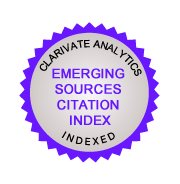The Relationship between Transaction Costs Of External Financing And Dividend Policy: Evidence From Malaysia
Keywords:
{}Abstract
The presence of transaction costs calls for the emphasis to be given to residual dividend policy, a policy that attempts to minimise transaction costs of external financing by accommodating capital expenditure financing requirement in companies’ dividend policy. In Malaysia, dividend increases are often perceived positively, regardless of the company’s requirement for funding future capital expenditure, and hence the extent of the influence of transaction costs on dividend policy is questionable. This study, therefore, was undertaken to examine this issue by investigating the relationship between dividend payout ratio and various proxies for transaction costs. The study found that standard deviation of return is negatively and statistically significant in influencing DPR, which indicates that consideration has been given to transaction costs since riskier companies tend to face higher transaction costs. The insignificance of other variables, however, implies that either these variables have little influence on transaction costs or that less emphasis is given by Malaysian companies in general to transaction costs relative to other factors in dividend decision-making.













